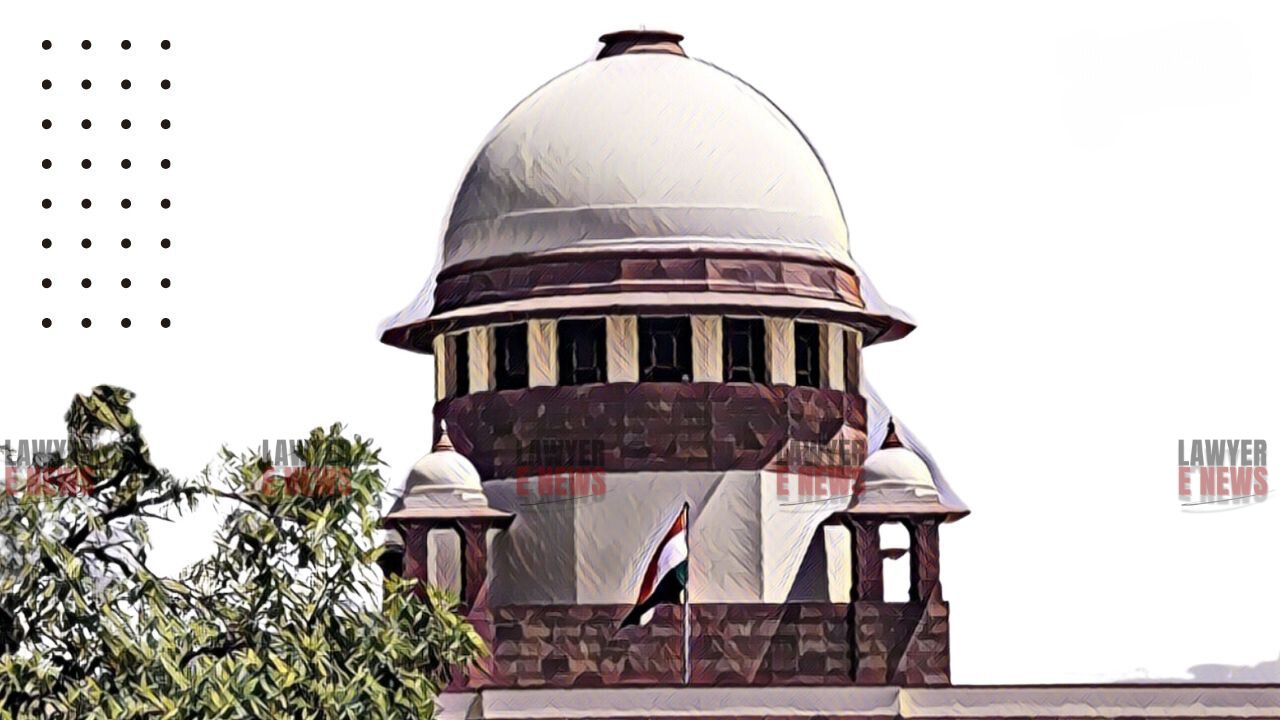-
by Admin
15 February 2026 5:35 AM



In a Latest judgment, the Supreme Court of India addressed a significant legal question: whether the purchase of a vehicle by a company for the personal use of its directors amounts to a 'commercial purpose' under the Consumer Protection Act, 1986. The bench, comprising Justices Bela M. Trivedi and Pankaj Mithal, ruled that such a purchase does not fall under 'commercial purpose,' thereby affirming the decisions of the National Consumer Disputes Redressal Commission (NCDRC).
The appeals involved multiple parties, including Daimler Chrysler India Pvt. Ltd. (now Mercedes Benz India Pvt. Ltd.) and CG Power and Industrial Solutions Ltd. The core issue was the maintainability of consumer complaints filed by companies regarding defects in vehicles purchased for the personal use of their directors.
C.A. No. 353 of 2008: Controls and Switchgear Company Ltd. filed a complaint about a defective vehicle purchased for their director's personal use. The NCDRC ordered the replacement of the car or a refund, which Daimler Chrysler contested.
C.A. Nos. 19536-19537 of 2017 & C.A. No. 2633 of 2018: CG Power and Industrial Solutions Ltd. filed a complaint regarding airbags not deploying during an accident, causing injuries to their Managing Director. The NCDRC ruled in favor of CG Power, awarding compensation for the deficiency in service and unfair trade practices by Mercedes Benz India Pvt. Ltd.
The Supreme Court delved into the interpretation of 'commercial purpose' under Section 2(1)(d) of the Consumer Protection Act, 1986. The Court reaffirmed the principle that 'commercial purpose' should involve activities directly linked to profit generation. The judgment stated, "The dominant intention or purpose of the transaction should be to facilitate profit generation for it to be considered a commercial purpose."
In C.A. No. 353 of 2008, the Court emphasized that the burden of proving the purchase was for commercial purposes lay with the seller. The Court found no evidence suggesting the car was used for profit-generating activities, noting, "There is nothing on record worth the name to show that the said car was used for any commercial purpose by the respondent-complainant."
The Court scrutinized the defects reported in the vehicles. For C.A. No. 353 of 2008, the Court concluded that the heating issue in the car was a defect as defined under Section 2(1)(f) of the Act. For C.A. Nos. 19536-19537 of 2017 & C.A. No. 2633 of 2018, the Court supported the NCDRC’s findings on the non-deployment of airbags, terming it a significant deficiency in service and an unfair trade practice.
The Supreme Court reiterated that consumer complaints are maintainable if the goods are purchased for personal use by company directors and not for commercial purposes. The judgment noted, "The dominant purpose behind purchasing the goods was for the personal use and consumption of the purchaser and/or their beneficiary."
Justice Bela M. Trivedi remarked, "The purchase of a vehicle by a company for the personal use of its director does not amount to a commercial purpose, even if such use is incidental to the purposes of the company."
The Supreme Court's ruling clarifies the scope of 'commercial purpose' under the Consumer Protection Act, reinforcing the rights of companies to file consumer complaints for goods purchased for personal use by their directors. This decision is expected to influence future cases, ensuring that consumer rights are upheld in the context of corporate purchases for personal use.
Date of Decision: July 9, 2024
M/S Daimler Chrysler India Pvt. Ltd. vs. M/S Controls & Switchgear Company Ltd. & Anr.
